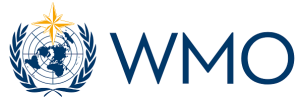Thematic Working Groups Information and Link to attend
There are nine Thematic Working Groups planned for discussions during SYMET-14. The output of each Working Group is significant for the success of the symposium, as recommendations made by the Groups can feed into the SYMET Statement, which will form the core of the symposium outcomes.
The Thematic Working Groups will convene at the same time using "breakout rooms" in the SYMET-14 Zoom connection, so you will have to choose one theme to participate. The themes are presented below for your consideration. We have also included the work plan templates that will be used in each Thematic Working Group. These contain some background on each theme and guidance to assist you in the discussions and recording of important points for action and reporting.
We ask you to Sign up to attend a Thematic Working Group. This will help the Chairs of each Group to have an idea of the number of people expected to attend the sessions and plan for good discussions.
All Thematic Working Group discussions will be conducted in English only. There will be no interpretation in these breakout group discussions.
Once you join the session, you will be directed to the thematic group of your choice.Guidelines for SYMET-14 Thematic Working Groups
Theme #2: Newly proposed WMO ETR Education and Training Board (Chair: Anna Timofeeva, RSHU, WMO RTC Russia, EC Capacity Development Panel)
Theme #3: Micro-credentials and credit transfer, how could we proceed (Chair: Yan Ma, Chair of Reading-NUIST Academy
Theme #4: Considering new pedagogical approaches and assessment methods, including the future uses of blended learning (Co-Chairs: Bernie Connell, CIRA, WMO-CGMS VLab, and Noer Nurhayati, BMKG)
Theme #6: Supporting the lifecycle of professionals: From the decision to enter the discipline, to continuous learning, to maintaining job satisfaction and competency. (Chair, Dr. Winifred Jordann, SAWS)
Theme #7: What are the content area expertise gaps within our academic teaching staff members? How do we identify and fill these? (Chairs: Victoria Sinclair (Univ. of Helsinki))
Theme #8: Update to the WMO Capacity Development Strategy (Chair: John Ogren, USA, and David Farrell, BB. Members: Michael Smith, USA, NOAA, EC Capacity Development Panel)
Theme #9: How do we identify the critical regional needs for the professional development of operational staff? How do we ensure that appropriately qualified participants attend our training events? Chair: Jim Poole (NOAA/NWS)
